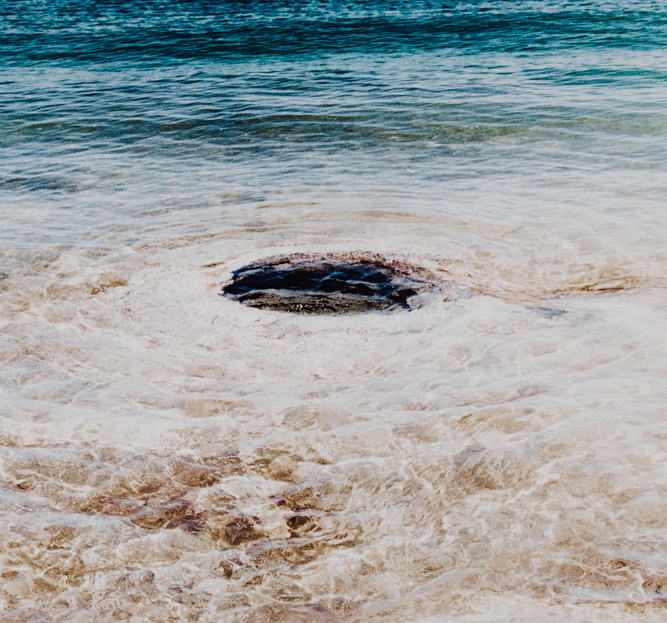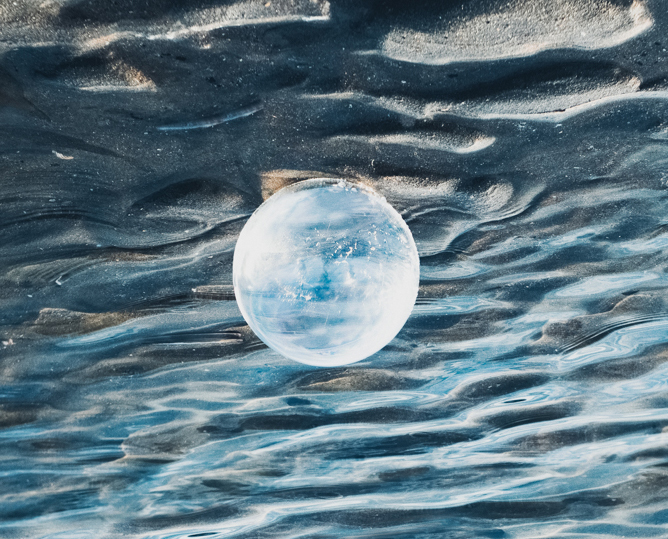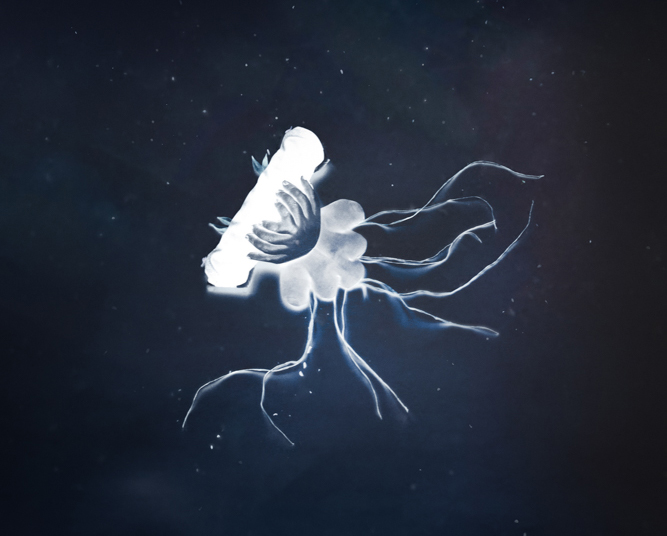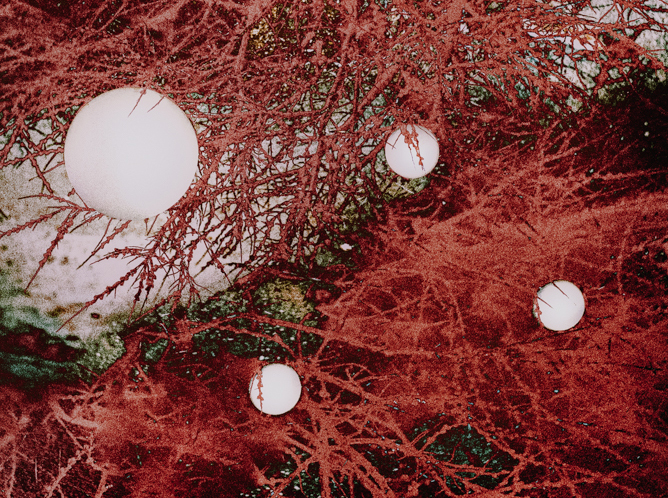This story is part of Next Generation, a series in which we give young makers a platform to showcase their work. Your work here? Get in touch and plot your coordinates as we navigate our future together.
Dora Lionstone recently graduated in photography at the Gerrit Rietveld Academy in Amsterdam. Before moving to the Netherlands, she was a software engineer in Munich with a Master’s Degree in Media Informatics. The essay The First Breath of the Earth accompanied with the photography project Cosmic Stream visualises alternate realities that find their place between fact and fiction, science and imagination in a world that is turned upside-down. The work journeys through the first breath of the Earth, a matter of one colossal spherical body, drying in the baking fires of the sun.
By now, the earth has entered the phase of young adolescence. Already fully grown in size, it is a giant without visible rim, as its horizon is vanishing in the mists of infinite distance. Once though, the earth was very small. Only seconds after its birth, it was hardly bigger than an atom. It came to life a trillion years sooner than expected and was therefore very fragile in the first days of its existence. Yet its urge to live was already strong and thus the earth and all inhabitants surrounding it prospered.
After a while, the earth had reached the size of a whale, and like all beings in the early years of their childhood, it was floating within an ocean of amniotic fluid. All beings were swimming alongside in these waters, energizing the ocean by constant fluctuation and there was no fixture to the surface of the earth since its gravitational pull was much weaker back then. The earth was constantly moving: directed by its breath it moved back and forth in waves, moving the ocean and all inhabitants with it. The movements were always longer and slower during the nights, while it was sleeping. And while it was sleeping, the inhabitants were sleeping as well. Even the sun was taking a break from the exhaustion of burning high all day, finally able to switch off and recharge in the darkness of the night.

Along with the rhythm of the earth’s breath, the inhabitants moved in consonance and all beings were floating in a continuous dance with one another. When inhabitants grew older, their movements started to slow down and they began to sink until they touched the surface of the earth. Here they lay, anchored forever with their bodies embracing the earth, until their matter melted, forming a new layer of skin to cover the earth. Out of the earth’s matter, new inhabitants could be born, relieving the weight of the earth by soaring up into the ocean, and fuelling the tides with a constant stream of energy.
Here they lay, anchored forever with their bodies embracing the earth, until their matter melted, forming a new layer of skin to cover the earth.
For a long time, the earth was keeping a steady size as the number of old and new inhabitants was equal. The earth’s whole body was warmed by the consoling heat of the sun, and so its skin offered a comfortable resting place for the old inhabitants. But one day, a few young inhabitants decided to sink down to the earth and absorb its heat. Fixated on soaking up all the warmth they could receive, they quickly abandoned their floating capacity and stayed on the earth. Soon, other inhabitants followed. More and more ceased to explore and energize the oceanic currents and instead kept clinging to the earth’s body, solely consuming its warmth. Neglecting to dive into the mysteries of the ocean, they were bathing only in their hunger for idleness.

So the earth grew - layer above layer - each time another inhabitant decided to stop swimming with the rhythm of the earth’s breath. The number of young inhabitants that kept floating in the ocean declined. While the earth was growing exponentially, the sun was powering up its furnace, trying to match the inhabitants’ growing demand for heat. The earth’s body was expanding evermore until even the last inhabitants have stopped floating and remained on the earth’s skin for good. With its massive size, the gravitational pull of the earth has become so strong, that no newborn inhabitant could be released to levitate towards the ocean anymore.
With their skin pressed to the earth’s skin, all matter melts into one colossal spherical body, drying in the baking fires of the sun.
The earth has now reached its adolescence: fully grown, but devoid of floating spirits. Being buried under the weight of all inhabitants anchored to its body, the earth is starting to feel very heavy, and breathing becomes harder. With its breath diminishing, its movements are weakening. Without the powering stream of floating beings, the waves of the ocean start to disappear, evaporating into the void, drop by drop. Losing its nourishing water, the earth begins to dry. Inhabitants forget how to swim and dive, and now have to walk along the surface. The sun, desperate to keep the growing earth warm, has been burning more and more of its energy to expand its fires ever longer into the night. Now, the scorching flames are glaring upon the bare earth relentlessly, until even walking becomes impossible for the inhabitants, and they all have to lie down. With their skin pressed to the earth’s skin, all matter melts into one colossal spherical body, drying in the baking fires of the sun.

It is when the sun has burned its last flame and starts to disappear into the dawn of an endless night when small cracks begin to ripple through the earth’s surface that is now all wrinkled and stiff. With its last faint breath, the earth succeeds to push away the burdening pieces of its own body, shedding part by part of the skin that contains the debris of all existence. As layer after layer drifts away into space, the earth shrinks in size until merely a small, dense core remains. All that is left is but a particle, hardly bigger than an atom.
The core is now alone in space. Stiff and rigid, it is unable to move in what seems like an endlessly stretched darkness since the sun’s fires have long been extinguished. A trillion years the core is already waiting, surrounded only by the wisp of silence. It will continue to wait until one day a drop of water might travel through space, and their orbits would collide. Devoured by the drop, the core would be born anew as a small earth floating inside an ocean of amniotic fluid. It would be just a fragile infant, but in the shelter of the nurturing water embracing its body, it would take its first breath.

Share your thoughts and join the technology debate!
Be the first to comment